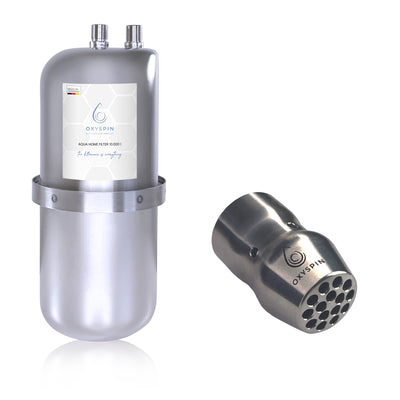Health problems related to dehydration

Dehydration - Dehydration can harm the body
Most of us drink too little because we often underestimate the importance of water. Low blood pressure, dizziness, lack of concentration - these can all be symptoms of dehydration. Lack of water can be a real stress test for our organism, especially when our everyday life is stressful. The consequences of dehydration are manifold, but each of them can have serious consequences for our body. Headaches from lack of water are usually the harmless beginning.
Depending on how far the dehydration has progressed, the extent can lead to mild to severe disorders of well-being or health. You can also quickly tell if you are dehydrated when urinating: if the urine turns darker, this indicates that there is a lack of water in the body. If the lack of water exceeds a certain threshold, it can lead to low blood pressure or, after a certain stage, serious damage can occur: the life-threatening volume deficiency shock can occur.
A lack of water in the body, also known as dehydration or dehydration, can occur when a person supplies their body with too little liquid or loses too much liquid or both at the same time. Dehydration can be caused by: unfavorable drinking habits, illnesses, injuries and the use of certain medications. Many of us also do not know how much is best to drink per day and what increases or decreases the need for fluids. If there is an emergency, those affected must drink more or, in extreme cases, the dehydration must be eliminated by an infusion. In the latter case, missing salts or electrolytes often have to be supplied.
Lack of water - have you been hit by it?
- Thirst, dry mouth and dry tongue
- Headache
- lack of concentration
- fatigue, weakness
- dizziness
- Strongly colored to dark urine, decrease in the amount of urine
- Dry, itchy skin
- Brittle to cracked lips
- weight loss
In heat and physical exertion, the risk of dehydration can increase because the body can produce too little or no sweat.
Persistent lack of water – when dehydration occurs
If there is a lack of liquid for a longer period of time, severe dehydration occurs, known as dehydration. This form of dehydration can paralyze many important bodily functions. You notice that the mucous membranes are drier and the risk of respiratory infections increases. Wounds heal more slowly, further consequences can be:
- Sharp decrease in the amount of urine
- Low blood pressure due to decrease in blood volume
- Chronic constipation
- Kidney pain, disorders of kidney function
- muscle cramps, seizures
- Increased risk of blood clots (thrombi) forming and impeding or blocking blood flow in blood vessels (thrombosis, thromboembolism)
Severe dehydration and its consequences
When the body gets to a point where it has lost more than 10% of its fluids, it becomes critical for health. Disorders of consciousness, orientation, circulation, behavioral changes and hallucinations can spread. From 12% dehydration, a hypovolemic shock (volume deficiency shock) is possible. In this case, the blood volume has decreased so much that the blood pressure is very low. The heart continues to pump to compensate, but the brain and the outer parts of the body are no longer supplied with sufficient blood. Loss of consciousness or unconsciousness may occur. Hands and feet become pale and cold with severe dehydration. Other symptoms may appear. If the body fluid decreases even further, a circulatory collapse or even a coma can occur. These would be the consequences of severe dehydration. Common triggers for an extreme lack of water with shock are severe diarrhea, severe vomiting, major blood loss and extensive burns.
Dehydration in children and the elderly
In infants and young children, dehydration can occur very quickly because their bodies are low on reserves. Young and old people in particular have to pay regular attention to their drinking habits. The most common triggers for major water shortages in children are diarrhea, vomiting, fever and heat or romping about in heated, poorly ventilated rooms. If children drink too little, a deficiency also quickly occurs. The most suitable drinks are pure water, mineral water, unsweetened fruit and herbal tea as well as thin fruit spritzers. It is better to stay away from fruit nectar, fruit juice drinks, sweet drinks such as cola or lemonade, iced tea and chocolate drinks, as they contain too much sugar.
Elderly people also need to be particularly careful about their drinking habits as they often suffer from dehydration. The body changes with age: in this case, the fluid reserves and the feeling of thirst decrease, the excretion of water through the kidneys increases. This means thirst can be completely absent in mild dehydration. Drinking plans can help here, as they show how much water must be drunk so that the organism is sufficiently hydrated. When seniors are unable to keep to such plans due to health problems, it is beneficial if family members, caregivers or caregivers support them to drink enough. Health problems such as constipation in older people are often the result of dehydration. In many cases, this is a result of inadequate supervision or care. Conscious action and attention are required when it comes to preventing dehydration.



